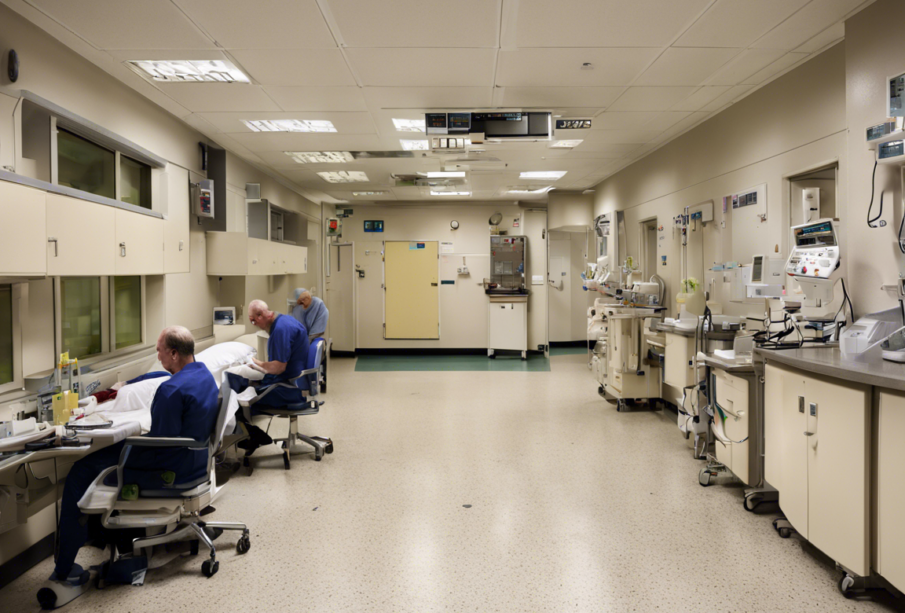Bristol Hospitals: Dealing with Power Outage Crisis

Introduction
Power outages can disrupt regular hospital operations, creating potential life-threatening situations for patients. Bristol Hospitals, like any medical facility, must be well-prepared to handle such crises effectively. In this article, we will explore the challenges posed by power outages in hospitals, the importance of preparedness, and practical steps that Bristol Hospitals can take to mitigate the impact of such events.
The Impact of Power Outages in Hospitals
Hospitals rely heavily on power to sustain critical operations. Power outages can lead to a range of issues, such as:
-
Life Support Systems: Patients on life support machines are at immediate risk during a power outage. The loss of electricity can result in equipment failure, potentially endangering the lives of vulnerable patients.
-
Medical Equipment: Many medical devices require a stable power supply to function correctly. Without electricity, essential equipment like ventilators, monitors, and infusion pumps may become inoperable, compromising patient care.
-
Communication: Power outages can disrupt communication systems within the hospital, hindering coordination among staff members and potentially delaying the delivery of vital care.
-
Temperature Control: Hospitals need electricity to regulate temperature and maintain a sterile environment. Without power, temperature control systems, including heating, ventilation, and air conditioning (HVAC), may fail, posing risks to both patients and staff.
Preparedness Strategies for Power Outages
To effectively manage power outages, Bristol Hospitals should consider implementing the following strategies:
1. Emergency Power Backup
Installing robust emergency power backup systems is crucial for hospitals. Generators can provide temporary electricity during outages, ensuring that critical equipment remains operational. Regular maintenance and testing of backup systems are essential to guarantee their reliability during emergencies.
2. Prioritize Critical Areas
During a power outage, hospitals should prioritize power distribution to critical areas such as intensive care units (ICUs), operating rooms, and emergency departments. By identifying and separating essential circuits, hospitals can focus limited power resources on areas with the greatest need.
3. Establish Communication Protocols
Clear communication is key during a crisis. Bristol Hospitals should establish communication protocols that enable staff to quickly disseminate information about the power outage, coordinate response efforts, and communicate with external stakeholders such as emergency services and utility providers.
4. Staff Training
Hospital staff play a crucial role in managing power outages. Regular training exercises can help familiarize personnel with emergency protocols, equipment operation procedures, and evacuation plans. Staff should be prepared to act swiftly and decisively in response to power disruptions.
5. Redundant Systems
Implementing redundant systems can enhance hospital resilience during power outages. Duplication of critical equipment, such as backup generators and uninterruptible power supply (UPS) units, can provide additional layers of protection against electrical failures.
6. Emergency Preparedness Drills
Regular emergency preparedness drills can help evaluate the effectiveness of response plans and identify areas for improvement. By simulating power outage scenarios, Bristol Hospitals can test their readiness, identify weaknesses, and refine emergency protocols.
7. Collaborate with Utility Providers
Establishing partnerships with utility providers can facilitate a coordinated response to power outages. Hospitals should engage with local energy companies to prioritize restoration efforts for critical healthcare facilities and ensure timely resolution of electrical issues.
Frequently Asked Questions (FAQs)
1. What should hospitals do in the event of a prolonged power outage?
During a prolonged power outage, hospitals should activate emergency protocols, conserve resources, communicate effectively with staff and patients, and consider initiating contingency plans, such as patient transfers to other facilities if necessary.
2. How frequently should hospitals test their emergency power backup systems?
Hospitals should test their emergency power backup systems regularly according to industry standards, typically every month for generators and more frequently for UPS units. Regular testing helps ensure the reliability of backup systems during actual emergencies.
3. Are there specific regulations that hospitals must follow regarding power outage preparedness?
Yes, healthcare facilities are subject to regulatory requirements related to emergency preparedness, including guidelines for power outage management. Hospitals must comply with standards set by organizations such as the Centers for Medicare and Medicaid Services (CMS) to ensure patient safety.
4. What role do facility managers play in mitigating the impact of power outages in hospitals?
Facility managers are essential in overseeing the maintenance of critical infrastructure, coordinating emergency response efforts, and implementing preventive measures to minimize the impact of power outages. Their expertise is invaluable in ensuring the resilience of hospital facilities.
5. How can hospitals ensure the safety of patients during power outages?
Hospitals can enhance patient safety during power outages by prioritizing critical care areas, maintaining communication channels, implementing backup power systems, training staff in emergency procedures, and regularly reviewing and updating contingency plans to address evolving challenges.
In conclusion, power outages pose significant challenges to hospital operations, requiring proactive preparedness strategies to safeguard patients and maintain essential services. By investing in emergency power backup systems, staff training, communication protocols, and collaborative partnerships, Bristol Hospitals can effectively manage power outage crises and uphold the highest standards of patient care and safety.





